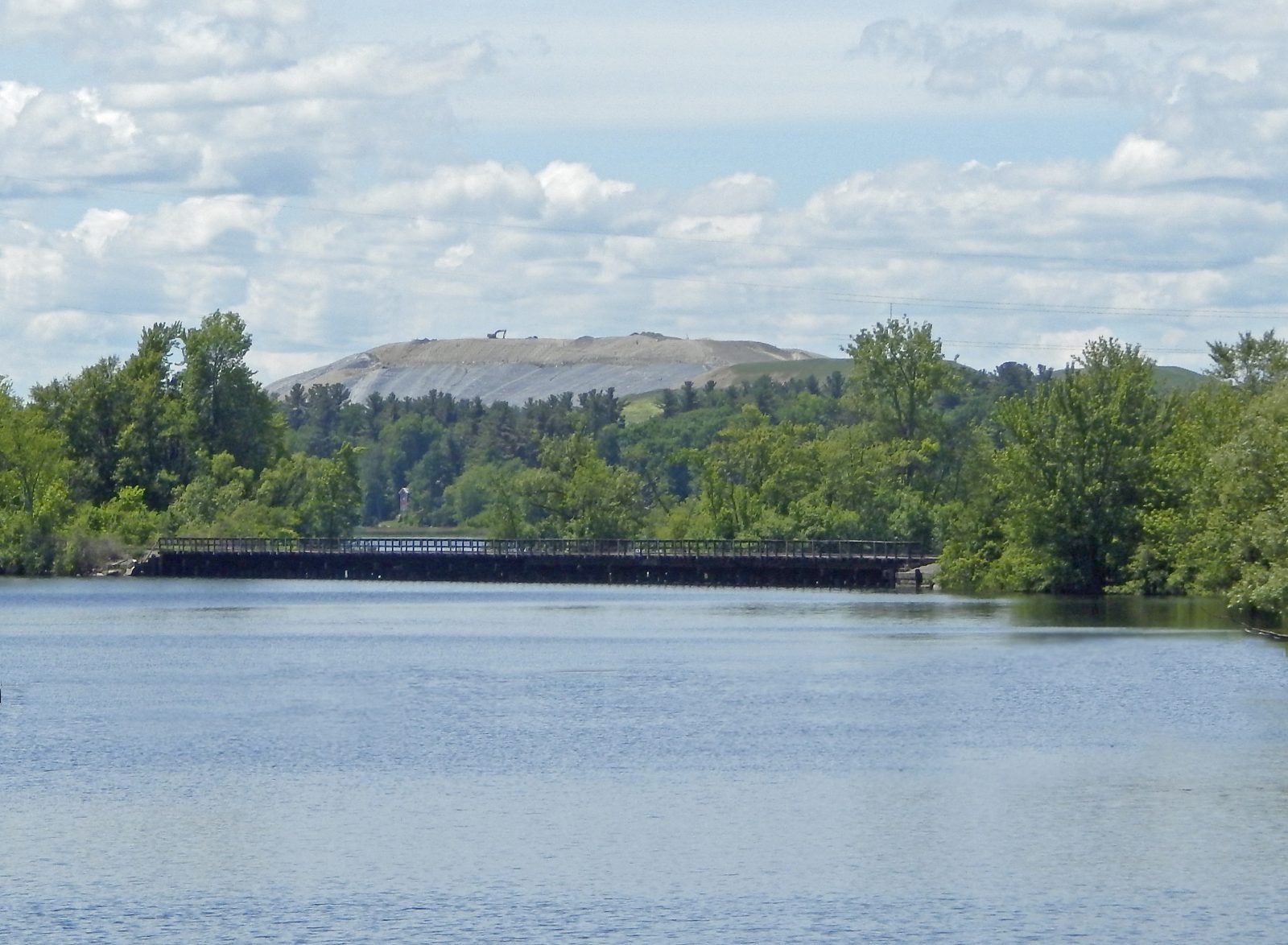Public meeting held to discuss permit amendment for Coventry dump leachate treatment
By William Crooks
Local Journalism Initiative
An important public meeting convened Dec. 12 in Newport, Vermont, to discuss a proposed amendment to a New England Waste Services of Vermont (NEWSVT) landfill pretreatment permit related to a critical environmental issue, with a long history, involving the pollution of Memphremagog Lake with toxic leachate. The meeting, led by Peter LaFlamme, Director of the Watershed Management Division at the Vermont Department of Environmental Conservation (DEC), along with Dr. Amy Polaczyk, manager of the wastewater discharge permit program, and Heather Collins, the pretreatment coordinator, was a forum intended for public engagement and transparency. Some Canadians participated and voiced their concerns.
The central focus of the meeting was to gather public input on the draft amendment to the pretreatment permit, originally issued on Jan. 1, 2023, which concerns the disposal of leachate from the NEWSVT landfill. This permit currently allows the transport and disposal of leachate to the Montpelier, Vermont wastewater treatment facility. The amendment in question arises from a requirement for Casella, the company managing the landfill, to develop and execute a pilot plan for treating PFAS (per- and polyfluoroalkyl substances) in the leachate. PFAS, sometimes referred to as “forever chemicals”, can have a deleterious effect on human beings’ immune and nervous systems, liver, kidney, thyroid, and development and reproductive systems, states the Canadian government’s official website. During the comment period, LaFlamme emphasized that the permit did not cover anything to do with leachate flow into Memphremagog Lake.
Understanding the amendment
The proposed amendment to the pretreatment permit involves several key aspects:
– Implementation of pilot plan: The permit amendment requires the initiation of the pilot study for leachate treatment as per the submitted plan, to begin no later than one month following the effective date of the amended permit.
– Study duration and sampling: The study is mandated to run for a minimum duration of 180 days. During this period, comprehensive sampling for PFAS and other contaminants is required at both the influent (untreated leachate) and effluent (treated leachate) stages.
– Detailed reporting requirements: All data collected during the pilot study, including any additional chemical treatments added to the system, must be reported. This requirement ensures comprehensive documentation of the pilot study’s findings and methodologies.
– Public input and transparency: The meeting provided a platform for public comments, with the official comment period remaining open through Dec. 20. This process allows for community involvement and feedback on the proposed amendment.






